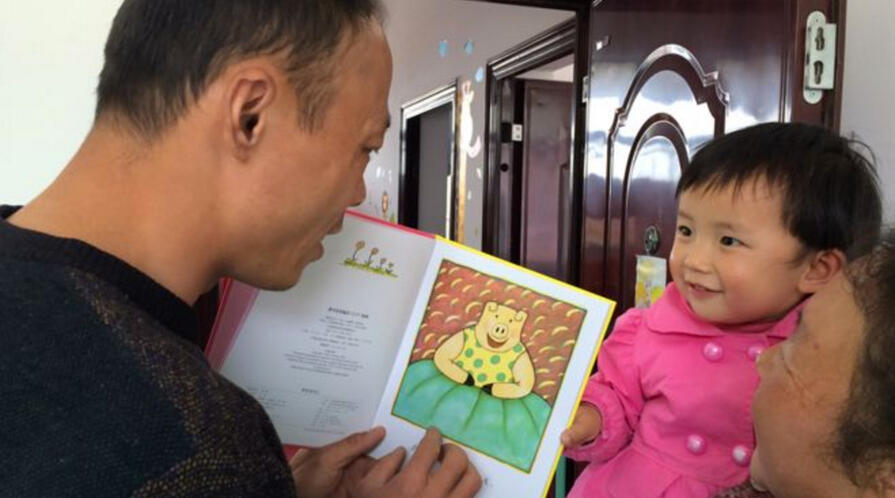BBC News: Reinventing China's Abortion Police
BBC News: Reinventing China's Abortion Police

Two-year-old Liu Siqi is curled up on her grandmother's lap, complaining of a tummy ache. A man tries to divert her with a squeaky plastic duck.
Gradually the toddler's mood brightens. She giggles and is persuaded to join him singing a nursery rhyme.
The man she calls Uncle Li belongs to China's army of family planning officers. Stationed in every city, town and village in China, for the past 35 years their job has been to hunt down families suspected of violating the country's draconian rules on how many children couples can have.
But with the end of the one-child policy at the beginning of this year, some, like Li Bo, are being retrained for a different role. Now he could even be mistaken for a Chinese Father Christmas visiting remote villages in the mountains of Shaanxi province with a bag full of toys and picture books.
Along with 68 of his colleagues, Li is part of a pilot programme involving academics from Shaanxi Normal University and Stanford University's Rural Education Action Programme. His new job is to teach parents and grandparents how to develop toddlers' minds by talking, singing and reading to them.
He works in Danfeng County, 700 miles (1,125km) south-west of Beijing, an impoverished area where more than half the adults of working age have left for jobs in the cities.
We meet at a new parenting centre in two-year-old Liu Siqi's village. It's part of the pilot project here in Shaanxi province designed to stimulate deprived rural children and give them the best start in life.
He watches toddlers throwing balls into boxes and playing with wooden shapes.
"This is a golden time for them to develop skills," he says. "I like this new job and I think my work is important, because what I am doing right now will probably influence what sort of people these children will become one day."
